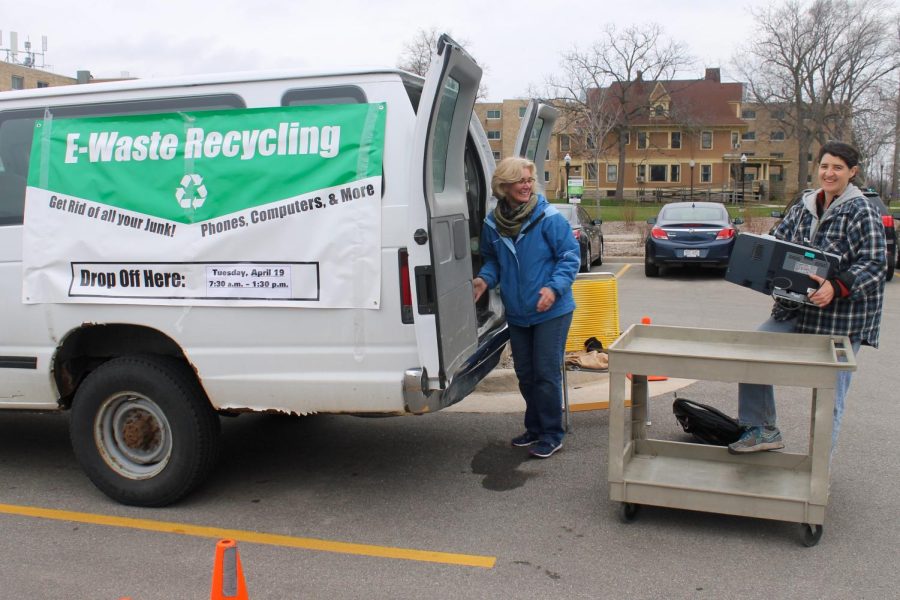E-waste recycling drive set for March 29-30
Photo courtesy of SEAC — E-waste can be recycled on March 29-30 outside the Campus Services Building.
March 18, 2022
UW Oshkosh’s Sustainability Institute will host an e-waste recycling drive in an effort to decrease the environmental impact and economic cost of electronic waste.
The drive is partnering with Outagamie County Recycling, and will take place on March 29 and 30 from 6:30 a.m. – 2:30 p.m. Bins will be available outside the Campus Services building.
Accepted items include: cell phones, electrical cords and cables (power cords when cut off appliances), VGA cords, CAT-5 cables, desktop computer towers (CPUs), keyboards, mice, laptops, chromebooks, hard drives/memory or RAM/boards, modems, servers, network switches, DVRs/cable boxes and game consoles.
Items that are not accepted include: computer monitors (CRT & flat), TVs, light bulbs, rechargeable batteries, alkaline and other disposable batteries, dehumidifiers, household appliances, CDs, DVD players/VCRs, fax machines, computer speakers, digital clocks, digital cameras, digital watches, boombox stereos, headphones/earphones, GPS devices, printers, scanners, chargers, and MP3 players.
According to a United Nations 2021 survey, each person in the world produces 16.8 pounds of e-waste per year on average, which equates to 57.4

million tons produced worldwide.
“Only 17.4% of this electronic waste, containing a mixture of harmful substances and precious materials, will be recorded as being properly collected, treated and recycled,” the Geneva Environment Network said.
Waste produced by electronics is not biodegradable and chemicals can accumulate in the soil, air, and water to harmful levels over time. These potentially dangerous chemicals include lead, mercury, cadmium, chromium and flame retardants.
According to the Wisconsin Department of Natural Resources, “[electronics] contain hazardous materials … that can harm human health and pollute the environment if not properly managed.”
Polluting the environment can lead to negative effects on human health such as increased rates of cancer, miscarriages, neurological damage and diminished IQs.
In 2009, the Wisconsin Act 50 was signed into law to create a program that promotes proper e-recycling and to prohibit certain types of electronic waste from ending up in landfills.
E-recycling also lessens the economic cost associated with e-waste, as many electronics contain valuable materials such as plastic, glass, neodymium, indium and cobalt that can be reused and recycled.














